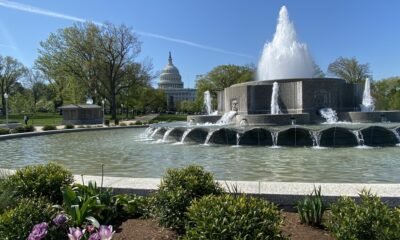crime
Raúl Grijalva’s Time in Congress is Up: A Call for Resignation

Raúl Grijalva, Arizona’s longest-serving congressman, is currently facing significant health challenges following treatment for lung cancer. As of late February, Grijalva has missed several pivotal votes in the House, raising concerns about his ability to represent Arizona’s 7th Congressional District effectively.
Grijalva, who has been a prominent figure in Arizona politics since he was elected in 2002, has not cast a vote since February 15, 2024. Recently, he was absent for a crucial budget vote where the Republicans narrowly passed a resolution impacting essential programs like Medicaid. His office cited treatment-related issues as the reason for his absence.
Over his extensive political career, Grijalva has been known for his vigorous advocacy on issues affecting working-class citizens and public health. At 77, his declining health has sparked discussion in political circles about the necessity of his resignation. Absent from the legislative floor, he leaves a significant gap in representation, which prompts calls for action from state officials.
Under constitutional guidelines, members of the House cannot be appointed; they must be elected. Arizona Governor Katie Hobbs would be required to call a special election within 72 hours of a vacancy. The process would entail an immediate primary followed by a general election within a few months, potentially leaving the district without representation until September.
Notably, Grijalva’s absence has become critical during a time when every vote counts in Congress. With the Republican majority enjoying a slim margin, analysts assert that his presence could have swayed key votes, thereby impacting legislation that directly affects Arizonans, particularly those reliant on healthcare programs.
As the political landscape evolves, calls for Grijalva to step down have gained traction. Observers note that although he has been a staunch defender of progressive policies, his current inability to fulfill legislative duties raises questions about the future direction for his district. Potential successors, including family members and local leaders, are already being considered as discussions about a transition in representation gain momentum.
Political analysts emphasize the need for a representative capable of engaging in the pressing issues of the day, suggesting that a timely decision from Grijalva regarding his resignation could restore active participation for the 7th Congressional District. As the situation develops, constituents await clarity on their representation in Congress.


















